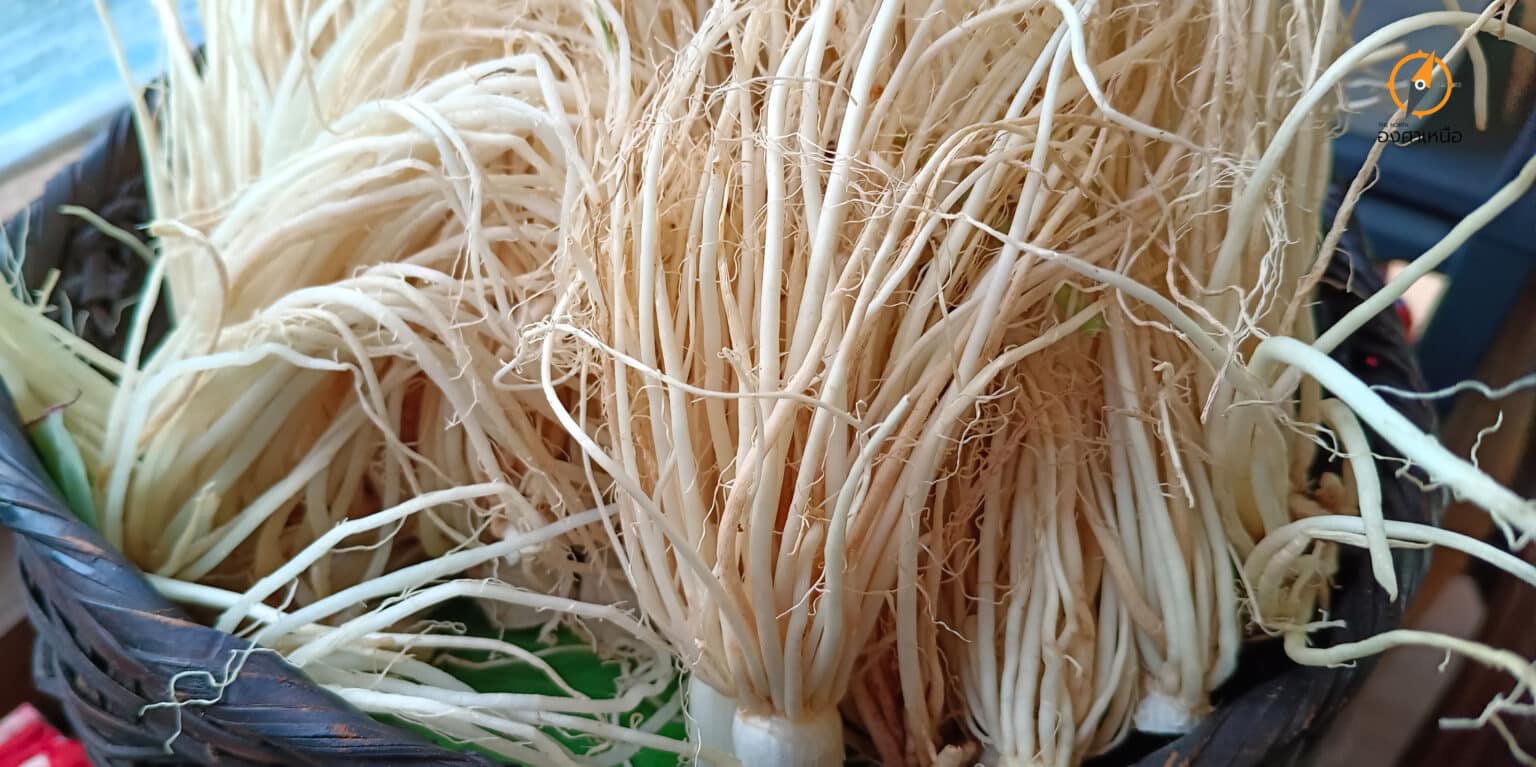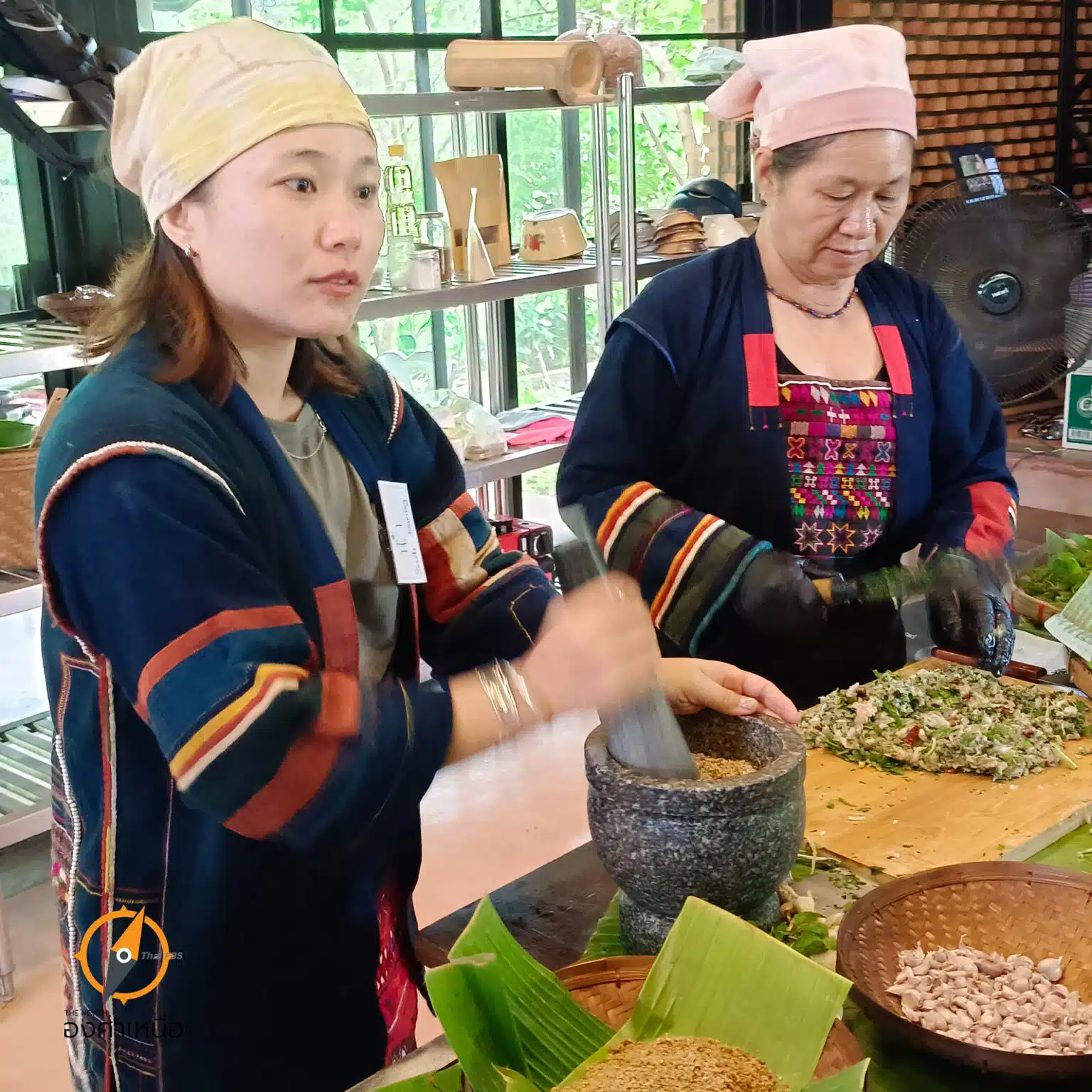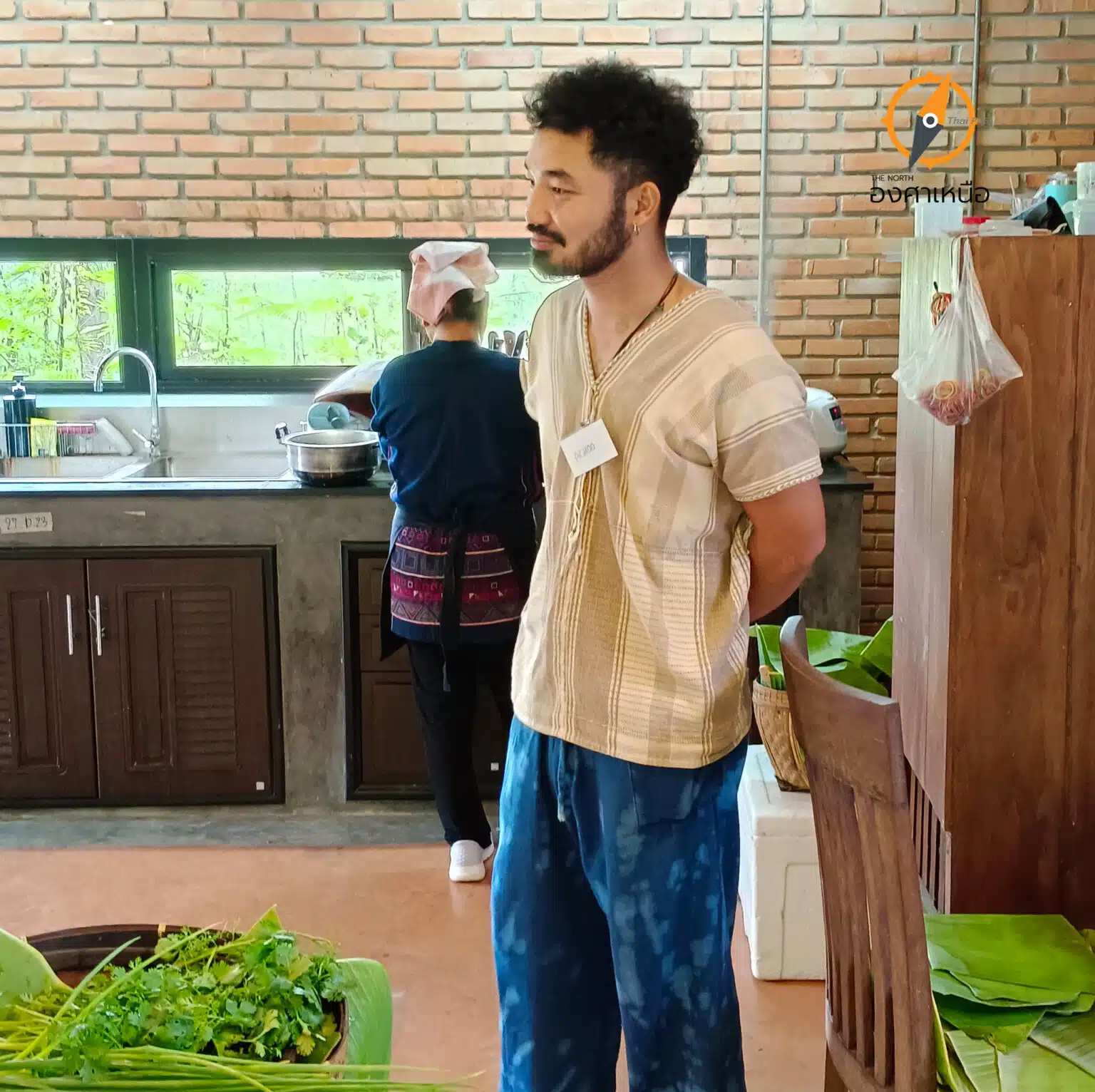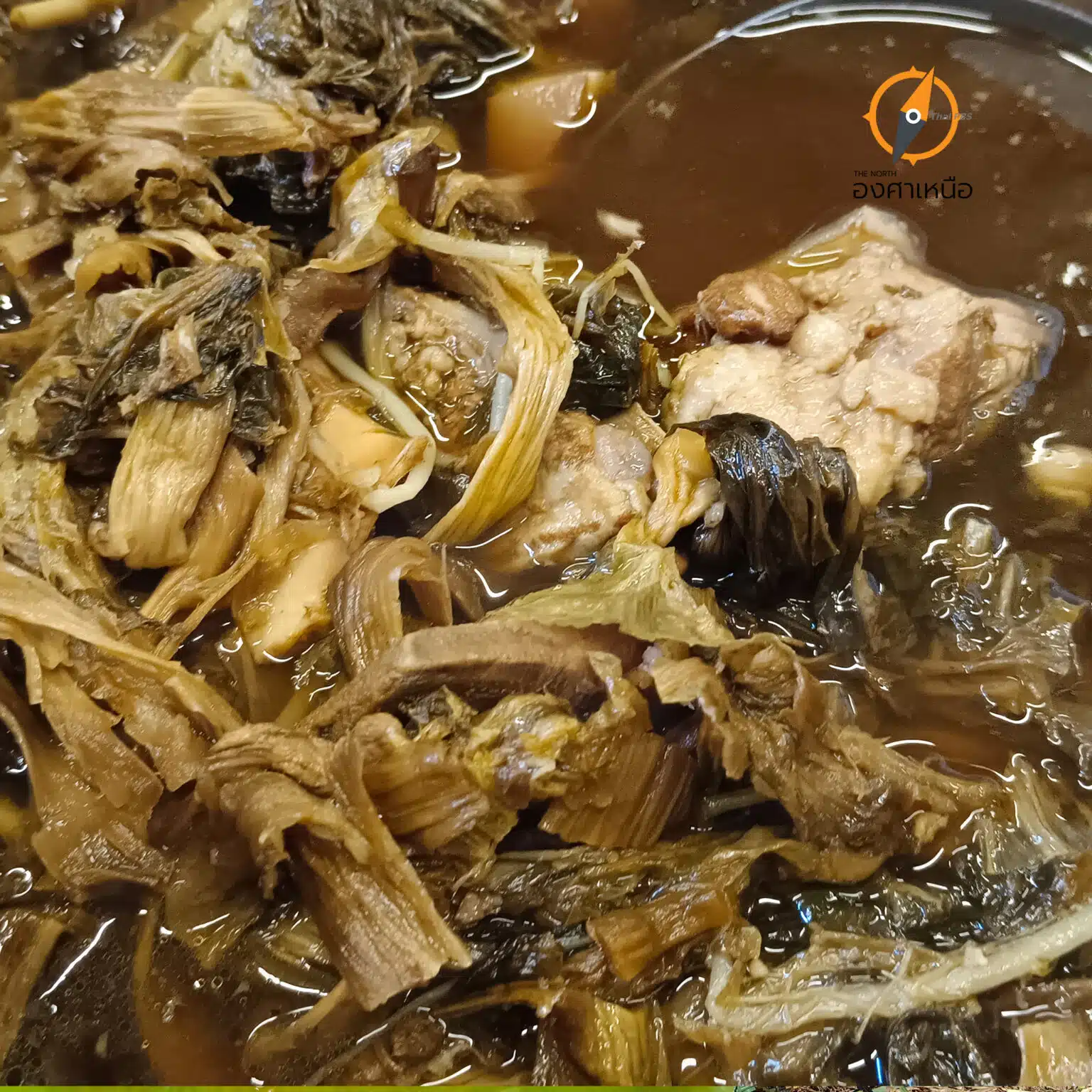Originally published in Thai at: https://localsthaipbs.net/indigenous_food01/
The rainy season brings a vibrant green to the hills of Northern Thailand, where indigenous communities like the Akha and Karen celebrate this abundance through their culinary traditions. At Akha Ama Living Factory in Mae Rim, Chiang Mai, a unique event, “Eat Local, Act Global,” brought together two passionate young chefs: Nam , a youth Akha food enthusiast, and Pachoo, a Karen youth advocate. Both are deeply connected to their roots and committed to showcasing the rich diversity of their local cuisines, passed down through generations. The event featured simple yet exquisite dishes like dried mustard green soup, Akha-style larb, and roasted pork with “wooshi” (วูชิ a chive-like root vegetable), highlighting how local, seasonal ingredients can be transformed into culinary delights.

Nam’s journey in food began with her grandmother, who taught her the art of preparing seasonal dishes. For the Akha, food is not merely sustenance; it is a cultural tapestry woven through rituals and celebrations. During the rainy season, markets are filled with small bundles of fresh herbs and vegetables collected by local villagers. Nam sees this season as an opportunity to celebrate nature, and invites others to reconnect with the rhythm of the seasons. At the event, her mother joined her in demonstrating how to prepare “wooshi’, and how to make traditional dishes like “Akha Larb.”

Pachoo, from the Karen village of Huai Tong Ko, Mae Hong Son, shared his expertise in preserving vegetables through traditional methods. He presented “Phaer (ปะเออ),” a dried mustard green soup, that reflects the Karen’s sustainable practices of harvesting from rotational farms and forests. He emphasized the importance of local ingredients, like forest turmeric and wild lemongrass, for preserving cultural identity and supporting community livelihoods.


Both Nam and Pachoo believe that elevating indigenous food traditions not only promotes sustainability but also encourages younger generations to reconnect with their roots, paving the way for a more diverse and resilient future.





